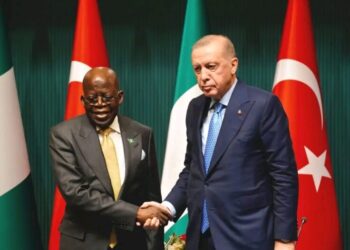Liz Truss was named as Britain’s next prime minister on Monday, winning a leadership race for the governing Conservative party at a time when the country faces a cost of living crisis, industrial unrest and a recession.
According to Reuters, this came after weeks of an often bad-tempered and divisive leadership contest that saw the foreign minister face off against former finance minister Rishi Sunak.
Truss came out on top in a vote of Conservative Party members, winning by 81,326 votes to 60,399.
“We need to show that we will deliver over the next two years. I will deliver a bold plan to cut taxes and grow our economy,” Truss said after the result was announced.
“I will deliver on the energy crisis, dealing with people’s energy bills, but also dealing with the long-term issues we have on energy supply,” She said.
The announcement triggers the start of a handover from Boris Johnson, who was forced to announce his resignation in July after months of scandal saw support for his administration drain away.
A BBC report also says the new Prime Minister Truss used her acceptance speech to pledge to “deliver on the energy crisis” by dealing with bills as well as supply issues.
A freeze on energy bills is understood to be one of a number of options being worked up in Whitehall to help struggling households to cope with the soaring cost of gas and electricity.
Energy industry sources expect the government to back freezing bills.
Ms Truss’s team is understood to have been working on a support package for energy bills “for weeks” and an announcement on what they will do is pencilled in for this Thursday.
“Lots of measures have been considered, some have progressed and some have not” a source said. Her team do not deny they might introduce a freeze on energy bills.
There have been multiple meetings between the energy industry and government, including ministers close to Ms Truss, who is seen as the front runner to replace Boris Johnson.
Nadhim Zahawi, the current chancellor who is expected to stay on in another role should Ms Truss win the leadership race, is understood to have been involved in conversations with industry leaders about the plan on a recent trip to the US.
A freeze of the energy price cap – the limit on how much gas and electricity can cost in England, Scotland and Wales – would not necessarily require upfront government funding at the beginning.
In an article for the Financial Times, Ms Truss’ close ally, Business Secretary Kwasi Kwarteng said a government led by her will borrow more to help people this winter through “exceptionally difficult times” during the energy price shock.
Kwarteng – tipped to be named chancellor by Miss Truss – suggested he would look at the UK’s rules on government borrowing and spending – called fiscal rules – to see if they still work for the economy.
The Treasury is allowed to suspend its fiscal rules in the event of a “significant negative shock to the UK economy”.
However, Kwarteng sought to reassure markets that the UK had space to borrow more and that it would be done in a “fiscally responsible way”.
During an interview with the BBC’s Sunday with Laura Kuenssberg, Ms Truss said it was fair to give higher earners more money back through tax cuts.
She said recent Tory policy had failed to grow the economy and has previously pledged to reverse a National Insurance rise.



















